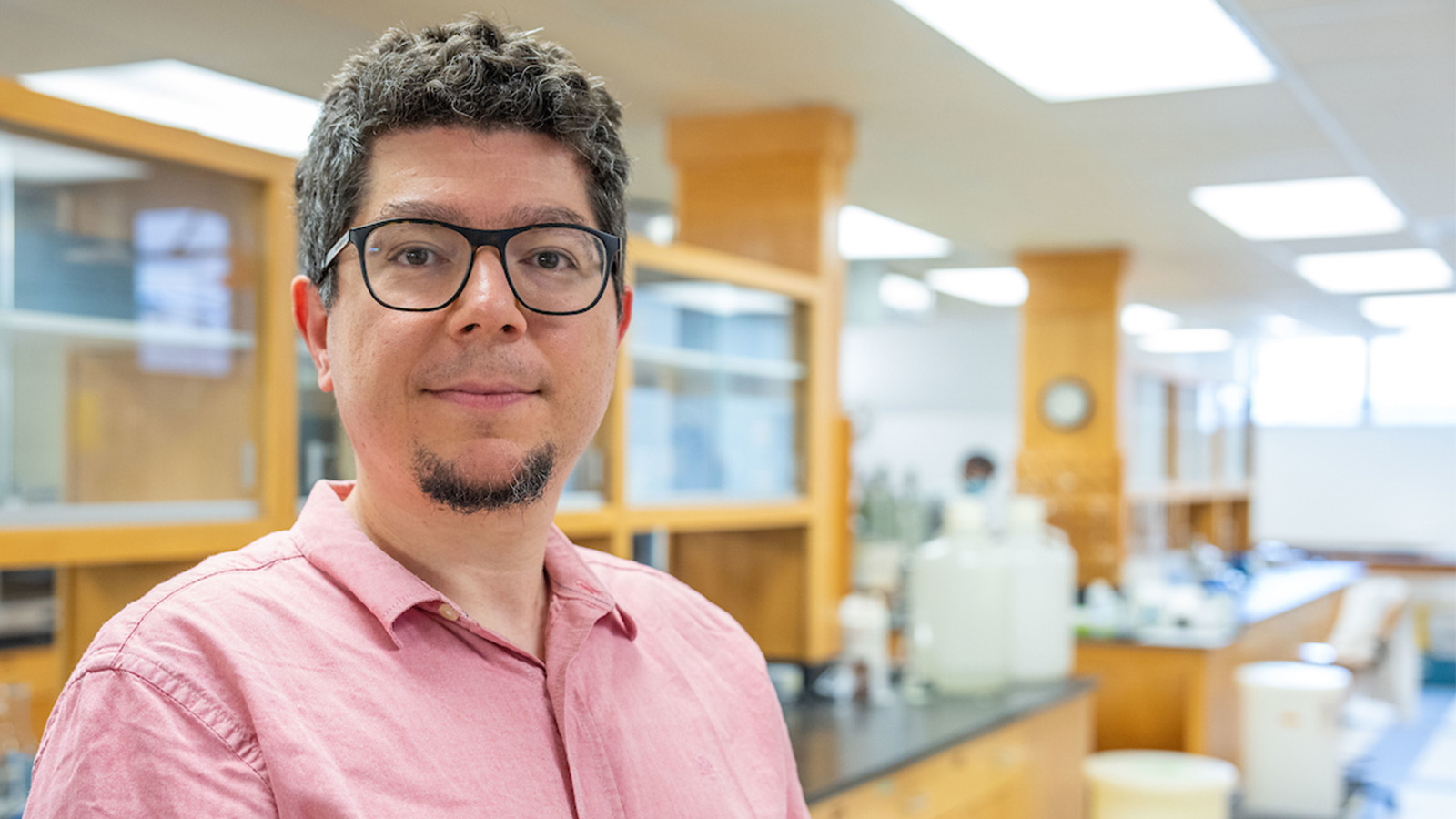
Apul Named Director of the University of Maine PFAS+ Initiative
Onur Apul, assistant professor of civil and environmental engineering at the University of Maine, has been named director of the university-wide PFAS+ initiative. He played a key role in the creation of the initiative in 2022 and, since its launch, has served as a member and the facilitator of its steering committee. In his new role, Apul will lead the steering committee’s efforts in their support of the PFAS+ Initiative’s mission to address the pressing contamination issue of per- and polyfluoroalkyl substances (PFAS) through cutting-edge research, education, and community engagement.
The UMaine PFAS+ Initiative is dedicated to providing comprehensive solutions to PFAS contamination through interdisciplinary research, innovative technology development and collaborative partnerships with government agencies, industry, and communities. The initiative aims to develop effective strategies for the detection, removal and prevention of PFAS contamination in water, soil and air.
“Dr. Apul brings a wealth of expertise and a strong track record of innovation to the UMaine PFAS+ initiative,” said Kody Varahramyan, Vice President for Research and Dean of the Graduate School at the University of Maine. “His expertise and commitment to solving environmental issues align perfectly with the mission of the initiative. We are confident that in his new role he will best support the UMaine PFAS+ initiative to make significant strides in addressing PFAS pollution and safeguarding public health in Maine and beyond.”
“I am very enthusiastic to support in my new role the advancement of the PFAS+ initiative at the University of Maine. PFAS contamination is a critical environmental challenge,” remarked Apul. “I am committed to working with our talented team of researchers, students and partners to develop sustainable solutions. Together, we will make a positive impact on the environment and public health.”
Apul holds a Ph.D. in environmental engineering and has published extensively on water treatment technologies and environmental sustainability. He has received numerous recognitions and awards for his research and contributions to the field. As director of the PFAS+ Initiative, he will spearhead efforts to secure funding, foster collaborations and translate research findings into practical applications.
